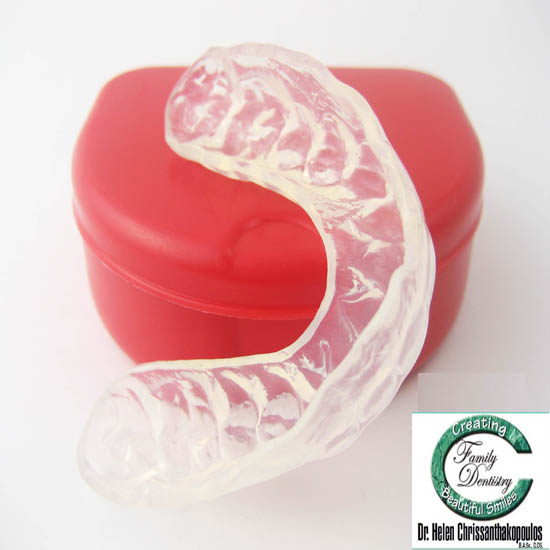What is a Nightguard or Mouthguard?
Friday Mar 12th, 2021
A mouthguard is a protective device for the mouth that covers the teeth and gums to prevent and reduce injury to the teeth, arches, lips and gums. A mouthguard is most often used to prevent injury in contact sports, as a treatment for bruxism or temporomandibular disorders, or as part of certain dental procedures, such as tooth bleaching.
Who Needs a Mouthguard?
Mouth guards should be used by anyone — both children and adults — who play contact sports such as football, boxing, soccer, ice hockey, basketball, lacrosse, and field hockey. However, even those participating in non-contact sports (for example, gymnastics) and any recreational activity (for example, skateboarding, mountain biking) that might pose a risk of injury to the mouth would benefit from wearing a protective mouth guard.
Adults and children who grind their teeth at night should have a nocturnal bite plate or bite splint made to prevent tooth damage.
Types of Mouthguards:
Mouth guards are coverings worn over teeth, and often used to protect teeth from injury from teeth grinding and during sports.
There are three types of mouth guards:
1. Stock or ready made. Stock mouth protectors are preformed and come ready to wear. They are inexpensive and can be bought at most sporting good stores and department stores. However, little can be done to adjust their fit, they are bulky, make breathing and talking difficult, and they provide little or no protection. Dentists do not recommend their use.
2. Mouth adapted or “boil and bite”. Boil and bite mouth protectors also can be bought at many sporting goods stores and may offer a better fit than stock mouth protectors. The “boil and bite” mouth guard is made from thermoplastic material. It is placed in hot water to soften, then placed in the mouth and shaped around the teeth using finger and tongue pressure.
3. Custom made. Custom-fitted mouth protectors are individually designed and made in a dental office or a professional laboratory based on your dentist’s instructions. First, your dentist will make an impression of your teeth and a mouth guard is then molded over the model using a special material. Due to the use of the special material and because of the extra time and work involved, this custom-made mouth guard is more expensive than the other types, but it provides the most comfort and protection.
Generally, mouth guards cover your upper teeth only, but in some instances (such as if you wear braces or another fixed dental appliance on your lower jaw), your dentist will make a mouth guard for the lower teeth as well. Your dentist can suggest the best mouth guard for you. An effective mouth guard should be comfortable, resist tears, be durable and easy to clean, and should not restrict your breathing or speech.




Post a comment